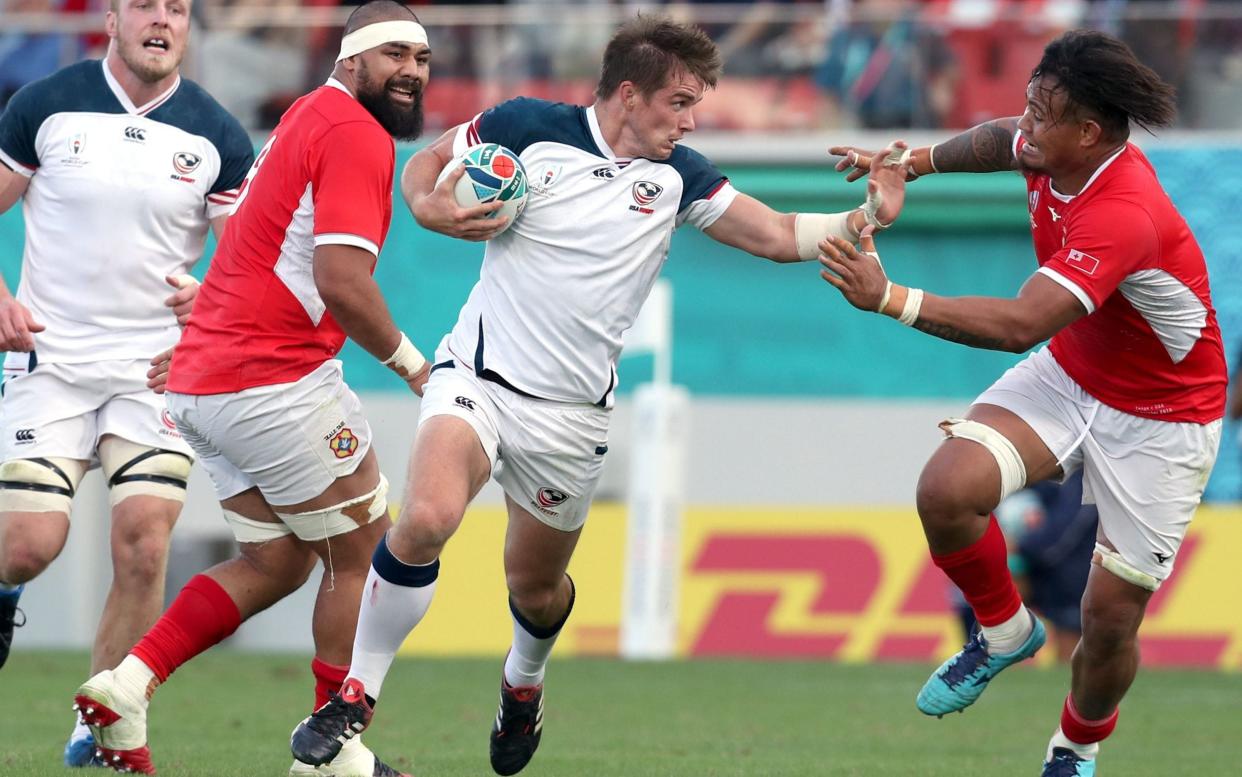Rugby Australia stand down 75 per cent of workforce and USA Rugby file for bankruptcy as coronavirus takes financial toll

The coronavirus pandemic continues to take its toll on the world of rugby union, with Rugby Australia forecasting losses of up £60million and the USA Rugby board filing for bankruptcy.
Rugby Australia has stood down 75 per cent of its workforce and is to impose salary reductions on its Wallabies after forecasting huge losses.
Three-quarters of the governing body's staff will not work for the next three months from April 1 and those remaining have been offered significant salary reductions or reduced hours.
Super Rugby has been suspended since round seven, while Rugby Australia has also shelved plans to launch a five-team domestic competition.
RA chief executive Raelene Castle, who has taken a 50 per cent salary reduction, says the cuts will now be extended to the Wallabies.
"We shared with the Rugby Union Players Association the breadth of our cost-cutting including the standing down of 75 per cent of our staff," Castle said.
"We will work closely with RUPA to reach an agreement which is appropriate given this unprecedented situation."
RA is projecting a worst-case scenario of up to £60m revenue losses should the Super Rugby season and the entire Wallabies domestic Test calendar be cancelled as a result of the virus.
"Today we have had to deliver the hardest news imaginable to our incredible, hard-working and passionate staff, that many of them will be stood down for a three-month period so that the game can survive this unprecedented crisis," Castle said.
"The measures we will implement from April 1, although extremely painful, are necessary to ensure the sport remains financially viable and to ensure that we are able to come out the other side of this global crisis, fully-operational and ready to throw everything into the rebuild.
"It is our priority to keep all of our valued team connected and engaged through this period."
All remaining executive staff across the game other than Castle have taken at least a 30 per cent salary reduction and Rugby Australia board directors have agreed to defer their director's fees.

Meanwhile, the USA Rugby board has voted to file for chapter 11 bankruptcy as a result of "insurmountable financial constraints".
The governing body suspended sanctioned competition and rugby activities indefinitely on March 20 due to the ongoing global pandemic.
According to the United States Courts website, a case filed under chapter 11 of the United States Bankruptcy Code is frequently referred to as a 'reorganisation' bankruptcy.
USA Rugby will undergo a restructuring process with input from World Rugby, while the country's men's and women's senior national teams will continue to compete as normal when rugby returns.
The governing body described the decision as the best way to "deliver a foundation for future stability".
"Following detailed consultation with legal advisers, the USA Rugby board of directors and Congress voted to officially file Chapter 11 bankruptcy as a result of compounded and insurmountable financial constraints," read a statement.
"The current suspension of sanctioned rugby activities caused by the ongoing Covid-19 pandemic has accelerated the existing financial challenges facing the union, and a reorganisation process will now be progressed with input from World Rugby.
"The USA Rugby board and Congress agree that filing for Chapter 11 bankruptcy supported by a robust action plan, is the optimal strategy in these exceptional circumstances. It is the best platform to swiftly and efficiently address challenges and deliver a foundation for future stability."
The United States' men's team, ranked 16th in the world, lost each of their four Pool C matches at last year's World Cup in Japan, including a 45-7 defeat to finalists England.
USA Rugby chairman Barbara O'Brien said in a statement: "This is the most challenging period this organisation has faced and all resolves were never taken lightly in coming to this determination.
"While the current climate is of course much larger than rugby, we remain focused with stakeholders and supporters in the continued effort toward a balanced rugby community where the game can truly grow."


